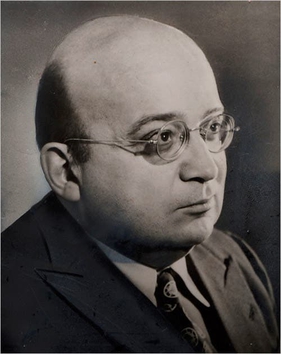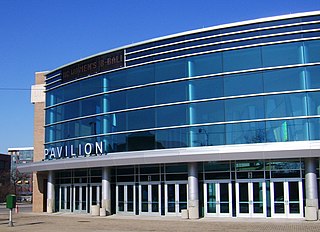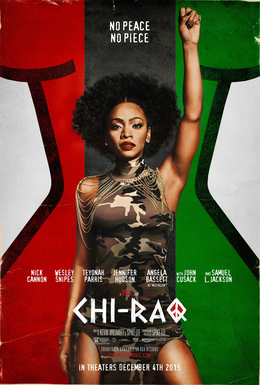
Chicago is the most populous city in the U.S. state of Illinois and in the Midwestern United States. With a population of 2,746,388 in the 2020 census, it is the third-most populous city in the United States after New York City and Los Angeles. As the seat of Cook County, the second-most populous county in the U.S., Chicago is the center of the Chicago metropolitan area, often colloquially called "Chicagoland" and home to 9.6 million residents.

Illinois is a state in the Midwestern region of the United States. It borders Lake Michigan to its northeast, the Mississippi River to its west, and the Wabash and Ohio rivers to its south. Of the fifty U.S. states, Illinois has the fifth-largest gross domestic product (GDP), the sixth-largest population, and the 25th-most land area. Its largest urban areas include Chicago and the Metro East of Greater St. Louis, as well as Peoria, Rockford, Champaign–Urbana, and Springfield, the state's capital.

The Great Chicago Fire was a conflagration that burned in the American city of Chicago during October 8–10, 1871. The fire killed approximately 300 people, destroyed roughly 3.3 square miles (9 km2) of the city including over 17,000 structures, and left more than 100,000 residents homeless. The fire began in a neighborhood southwest of the city center. A long period of hot, dry, windy conditions, and the wooden construction prevalent in the city, led to the conflagration. The fire leapt the south branch of the Chicago River and destroyed much of central Chicago and then leapt the main stem of the river, consuming the Near North Side.

Carl August Sandburg was an American poet, biographer, journalist, and editor. He won three Pulitzer Prizes: two for his poetry and one for his biography of Abraham Lincoln. During his lifetime, Sandburg was widely regarded as "a major figure in contemporary literature", especially for volumes of his collected verse, including Chicago Poems (1916), Cornhuskers (1918), and Smoke and Steel (1920). He enjoyed "unrivaled appeal as a poet in his day, perhaps because the breadth of his experiences connected him with so many strands of American life". When he died in 1967, President Lyndon B. Johnson observed that "Carl Sandburg was more than the voice of America, more than the poet of its strength and genius. He was America."

Abbott Joseph Liebling was an American journalist who was closely associated with The New Yorker from 1935 until his death. His New York Times obituary called him "a critic of the daily press, a chronicler of the prize ring, an epicure and a biographer of such diverse personages as Gov. Earl Long of Louisiana and Col. John R. Stingo." He was known for dubbing Chicago "The Second City" and for the aphorism "Freedom of the press is guaranteed only to those who own one." Liebling's boxing book The Sweet Science was named the greatest sports book of all time by Sports Illustrated. Liebling was a connoisseur of French cuisine, a subject he wrote about in Between Meals: An Appetite For Paris. Pete Hamill, editor of a Library of America anthology of Liebling's writings, said "He was a gourmand of words, in addition to food... he retained his taste for 'low' culture too: boxers and corner men, conmen and cigar store owners, political hacks and hack operators. They're all celebrated in [his] pages."

WLS-TV is a television station in Chicago, Illinois, United States, serving as the market's ABC network outlet. It has been owned and operated by the network's ABC Owned Television Stations division since the station's inception. WLS-TV's studios are located on North State Street in the Chicago Loop, and its transmitter is located atop the Willis Tower.

Chicago has played a central role in American economic, cultural and political history. Since the 1850s Chicago has been one of the dominant metropolises in the Midwestern United States, and has been the largest city in the Midwest since the 1880 census. The area's recorded history begins with the arrival of French explorers, missionaries and fur traders in the late 17th century and their interaction with the local Pottawatomie Native Americans. Jean Baptiste Point du Sable was the first permanent non-indigenous settler in the area, having a house at the mouth of the Chicago River in the late 18th century. There were small settlements and a U.S. Army fort, but the soldiers and settlers were all driven off in 1812. The modern city was incorporated in 1837 by Northern businessmen and grew rapidly from real estate speculation and the realization that it had a commanding position in the emerging inland transportation network, based on lake traffic and railroads, controlling access from the Great Lakes into the Mississippi River basin.

The Chicago Outfit is an Italian-American organized crime syndicate or crime family based in Chicago, Illinois, which originated in the city's South Side in 1910. It is part of the larger Italian-American Mafia.

The city of Chicago is located in northern Illinois, United States, at the south western tip of Lake Michigan. It sits on the Saint Lawrence Seaway continental divide at the site of the Chicago Portage, an ancient trade route connecting the Mississippi River and the Great Lakes watersheds.

Credit Union 1 Arena is a multi-purpose arena located at 525 S. Racine Avenue on the Near West Side in Chicago, Illinois. It opened in 1982.

The city of Chicago has been known by many nicknames, but it is most widely recognized as the "Windy City".

St. Charles is a city in DuPage and Kane counties in the U.S. state of Illinois. It lies roughly 40 miles (64 km) west of Chicago on Illinois Route 64. Per the 2020 census, the population was 33,081. The official city slogan is "Pride of the Fox", after the Fox River that runs through the center of town. St. Charles is part of a tri-city area along with Geneva and Batavia, all western suburbs of similar size and socioeconomic condition.

Chi-Raq is a 2015 American musical crime comedy drama film, directed and produced by Spike Lee and co-written by Lee and Kevin Willmott. Set in Chicago, the film focuses on the gang violence prevalent in neighborhoods on the city's south side, particularly the Englewood neighborhood.
Only the Family, often abbreviated as OTF, is an American hip hop group from Chicago, Illinois. The group was formed by American rapper Lil Durk in 2010. The group is composed of Chicago-drill recording artists, which included late rapper King Von.
Mariame Kaba is an American activist, grassroots organizer, and educator who advocates for the abolition of the prison industrial complex, including all police. She is the author of We Do This 'Til We Free Us (2021). The Mariame Kaba Papers are held by the Chicago Public Library Special Collections.















